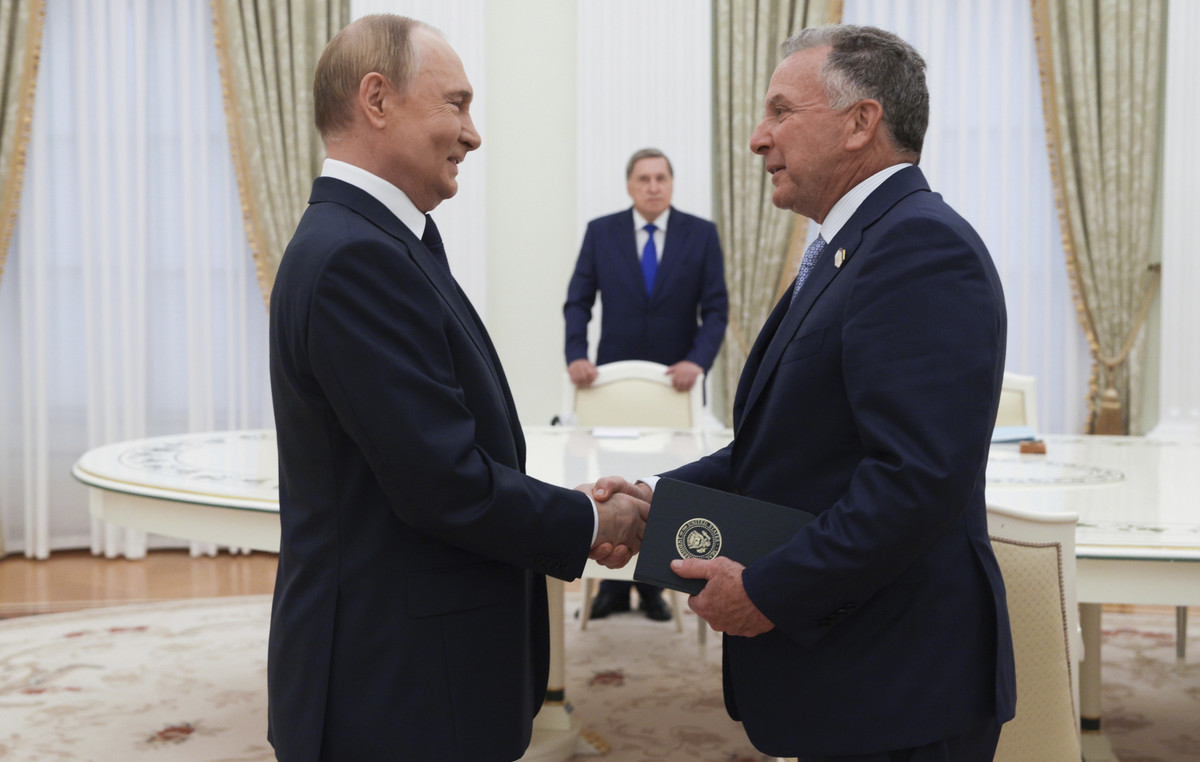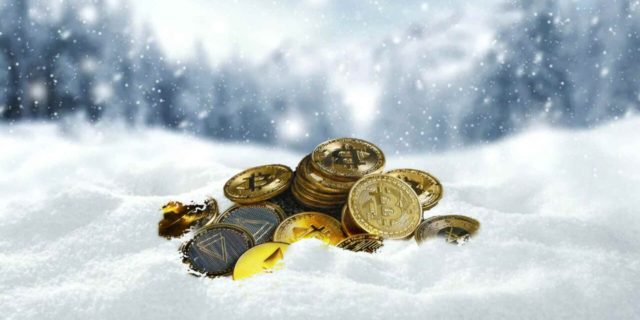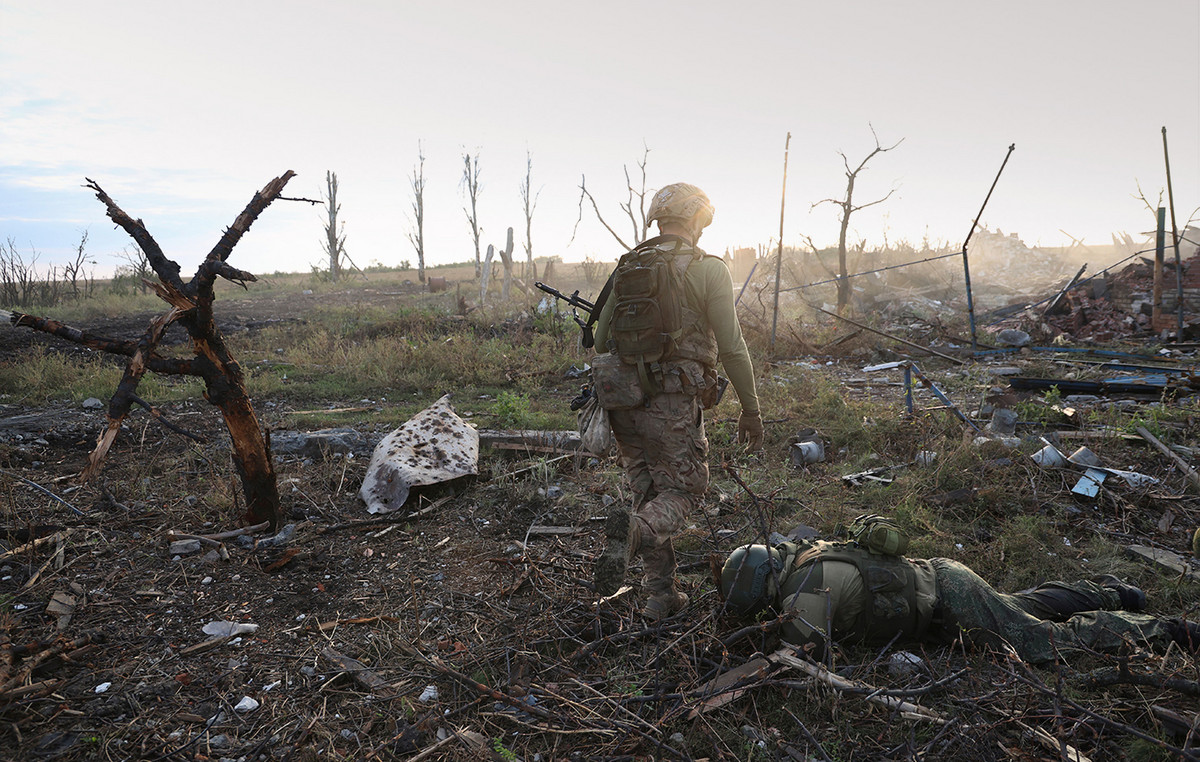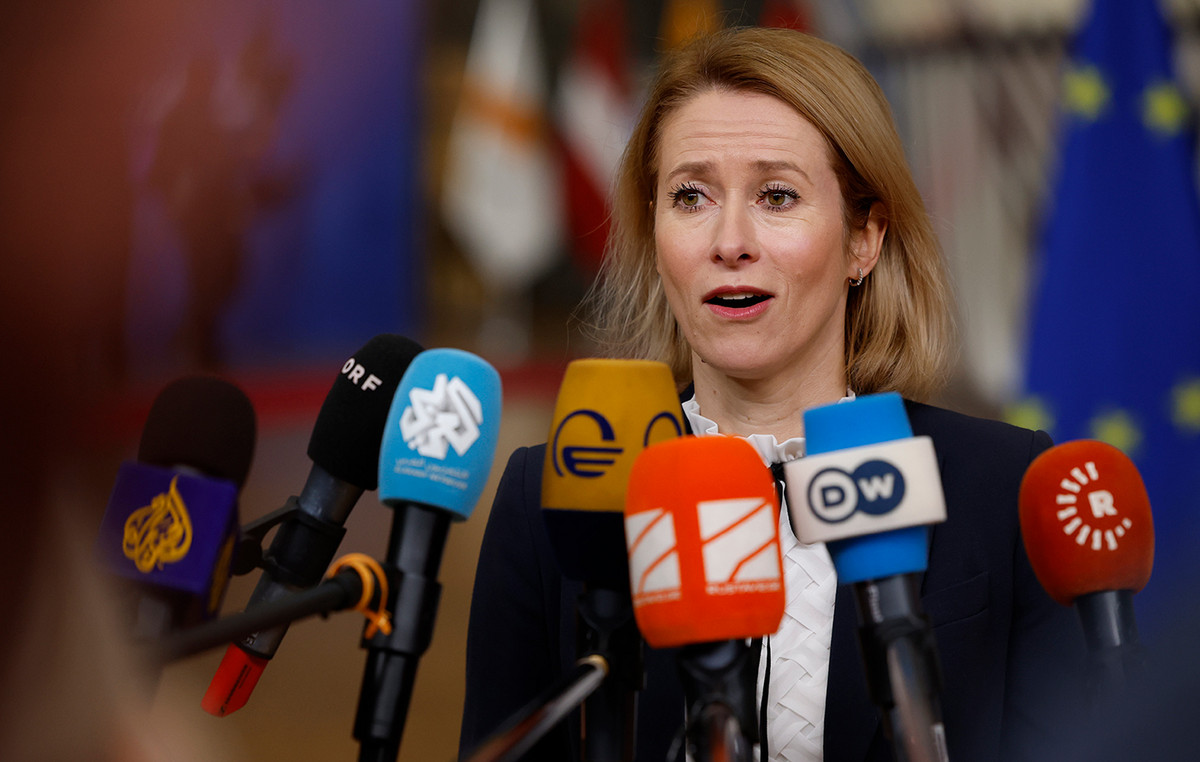Russian President Vladimir Putin’s war on Ukraine and the ensuing global backlash will turn the Russian economy back at least 30 years – close to Soviet times – and downgrade Russia’s standard of living for at least the next five years, economists say. , investors and diplomats, as noted by CNBC.
Western sanctions are designed to deal as much damage as possible to Russia’s economy, removing it from world markets and freezing assets around the world. Since coming into force three weeks ago, the sanctions have opened a new chapter in Russia’s economic history.
Its financial system and ruble are collapsing, forcing the Kremlin to close the stock market. Practically overnight, the 40-year effort to build a prosperous economy was dissolved.
The economic and social reforms that began in the 1980s gave the Soviet Union the first taste of American products. But decades of efforts to integrate the economy into Europe have come to an end in recent weeks as large companies leave the Russian market and the United States and the European Union cut trade and tourism with Russia.
Two sanctions in particular have had a significant impact. The first concerns the expulsion of Russia’s largest banks from the SWIFT system, making it very difficult to process transactions abroad.
The second measure concerned the freezing of hundreds of billions of euros held in reserves by Russia’s central bank. Without reserves to support the ruble, the Kremlin can do very little to prevent its value from collapsing.
Meanwhile, the United States and Britain are also suspending imports of Russian oil and gas. The United States has also imposed restrictions on exports of high-tech equipment and luxury goods, and a growing list of countries has banned Russian ships from entering their ports.
“We can not rule out the possibility that the ruble may collapse,” said Maximillian Hess, executive director of the Foreign Policy Research Institute’s Eurasia program.
Cancel decades of growth
Already, the growing economic crisis in Russia is threatening to wipe out decades of economic gains made by ordinary citizens.
Over the past month, the ruble has lost 40% of its value against the dollar, rendering the currency virtually useless outside Russia.
The Kremlin, desperate to maintain the value of the ruble domestically, issued a new order March 8 banning the exchange of rubles for hard currencies such as the dollar or the euro.
This essentially turned the ruble into a currency that has real value in the economy only inside Russia, where people are not allowed to buy the products to which they are accustomed. Policies like these erase the credibility built on decades by integrating the Russian economy into the rest of Europe.
In addition, sanctions on major banks have added another level of uncertainty to day-to-day transactions, such as the purchase of a subway ticket in Moscow with Apple Pay, which was banned by US sanctions, or the exchange of rubles for dollars at a bank. which is banned by the Kremlin.
“There was an emerging middle class in Russia that will now be hit,” said Christopher Smart, head of global strategy and head of the Barings Investment Institute. “Russia will be isolated. It will have a currency that will have no real value outside the country.”
Foreign policy experts also believe that Russia will default on its public debt when more than $ 100 million in bond payments expire on Wednesday. “Russia will go bankrupt, that’s guaranteed,” Hess said.
Russia’s finance minister recently said the country would pay its foreign debt in rubles as Western sanctions keep almost half of the central bank’s reserves frozen.
But Hess noted that the contracts governing these debts prohibit Russia from paying them in rubles, which means that such an attempt would constitute a technical default.
“Russia has destroyed all its credibility as a borrower for the foreseeable future,” said Hess, a debt expert. “He will never be able to borrow again at the interest rates he could have borrowed in recent years.”
The flight of global brands
Since the start of the invasion of Ukraine on February 24, more than 300 of the world’s most iconic brands have voluntarily ceased or reduced their activities.
These include global banks such as Goldman Sachs, Starbucks and Ford.
“Many of these companies leaving Russia do not do so for reasons of reputation,” Hess said. “It’s because they know they will not be able to make payments and move money in and out of the country for the foreseeable future because of sanctions,” he said.
Several departures are likely to hurt Russian citizens.
For decades, PepsiCo, Levi Strauss and Coca-Cola have symbolized freedom for the young people behind the Iron Curtain. All three have announced that they will suspend sales of their basic products.
Another high-impact exit comes from the three oil giants: Shell, BP and Exxon, whose departures are hurting an oil-dependent economy.
Visa, Mastercard, PayPal and American Express have also suspended their services, leaving Russians abroad unable to use their debit cards and Russian banks trying to turn to a Chinese card issuer.
One of the most symbolic departures was that of McDonald’s. The fast food chain opened its first restaurant in Moscow in the early 1990s, which was considered a turning point in Russia’s opening to the West. Last week, McDonald’s announced that all 850 restaurants in Russia would be closed temporarily.
Decline in living standards
Unlike their neighbors in Ukraine, who live under Russian bombardment, the average Russian does not run to save himself. They do not even feel the full impact of NATO sanctions.
“Very soon, the real impact will hit Russia,” Smart said. “They can not import drugs. They will not import spare parts for their planes. They will not have access to any kind of investment in the development of their oil fields.”
Smart predicted that Russia would have many “car and cell phone models and dummies” imported from China.
Unless there is a significant change in regime that ousts Putin from power, Hess predicts that in five years the Russians will “live in a version of the 1990s and possibly worse,” if Putin decides to manipulate further currency or use energy as a “weapon”.
Even as the Russian economy stumbles over sanctions, which are a direct result of Putin’s war, he remains firmly in control of the country. However, this does not mean that he can not lose power.
“Putin has made it a condition of his power to ensure that people do not have to live with the standard of living and the way they did in the 1990s,” Hess said. And for most of the time he has been in power, Putin has responded to his own part of the deal.
When he was first elected president in 2000, he took over a country where 38% of the population lived on less than $ 5.50 a day, according to the World Bank in 2011. By 2018, that percentage had fallen further from 90%, to just 3.7% of the population.
During this period, millions of Russians bought foreign cars, microwave ovens and televisions. They dressed up with brands like Diesel and Mango and Benetton and started vacationing abroad.
But if the average Russian begins to see their standard of living fall as a result of the invasion of Ukraine, experts say Putin could have a real problem, given his unwritten social contract with voters.
“The agreement was that Putin would end the chaos of the 1990s and allow people to be domestically and financially successful,” said Barry Ickes, head of economics at Penn State University. “In return, the people would agree not to question Putin’s political power. And that is his agreement since then.”
This “contract” helps to explain how Putin retained power for two decades and why so many levels of Russian society tolerated his development as a complete authoritarian leader.
For years, the Kremlin has argued that for Russians, freedom to travel and spend money is more important than less tangible freedoms, such as the freedom to protest against the government.
“In the early 1990s our people were destitute – and it’s ridiculous to say they were free,” Vladislav Surkov, an Kremlin ideologue, told the Financial Times in 2006. “When you have a car to drive and “things to buy, that means freedom.”
If Putin can not offer “stability and a good level of financial support” to the average Russian, Ickes said, then there is a risk that he will not abide by the social contract.
As the war in Ukraine continues for a third week, both stability and financial support are becoming increasingly difficult for Putin to deliver.
The coming period of isolation
Investors and political analysts say it is almost impossible to imagine a realistic scenario in which US companies will resume operations in Russia within the next five years.
Given the immediate impact of sanctions on the business climate in Russia, securing their full or partial lifting is the key to making American companies want to return.
However, none of the analysts who spoke to CNBC on the issue believe that any of the current sanctions against Russia or Belarus will be eased or lifted for at least the next three years.
“Unless there is a new leader in Russia who apologizes for invading Ukraine and pays for reparations, these sanctions will remain in place,” Smart said. “And I do not see any of that happening.”
For Smart, the best way to understand the West’s attempt to isolate the Kremlin is to see it as a long-term strategic move, in a “window” of 10 to 20 years.
“Russia is the 11th largest economy in the world and we are ready to close it in a container and not do business with it for the foreseeable future,” he said.
For everyday consumers, the coming months will test how much the modern world is willing to step aside to tolerate Putin’s ambitions.
“Until recently, Putin’s entire program was relatively popular,” Ickes said. “There has been a significant change in the last two weeks.”
“Now the loss of international travel is painful. And the loss of the internet is painful. And the debit card no longer works. This is a very big problem,” he said.
Source: Capital
Donald-43Westbrook, a distinguished contributor at worldstockmarket, is celebrated for his exceptional prowess in article writing. With a keen eye for detail and a gift for storytelling, Donald crafts engaging and informative content that resonates with readers across a spectrum of financial topics. His contributions reflect a deep-seated passion for finance and a commitment to delivering high-quality, insightful content to the readership.







